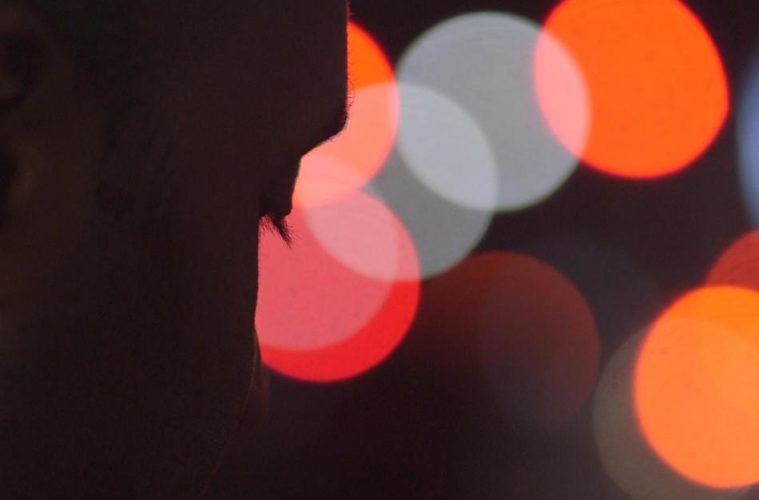An evocative meditation on sight, cinema, and the tools of filmmaking, Rodney Evans’ latest feature documentary Vision Portraits is an intimate and generous look at what it means to reconfigure your art practice to accommodate your own disability. For Evans, who suffers from a rare retina condition that’s slowly eroding his peripheral vision, it’s using the landscape of the face to tell his stories rather than the traditional tools of mise-en-scene which considers all elements within the frame.

Seeking out and visiting artists across disciplines Evans–best known for his 2004 Sundance-winning narrative Brother to Brother along with The Happy Sad–crafts an often captivating and immersive portrait of disability as they rely on collaborators to not only make work but also work in various fields, including academia. Connecting with writer Ryan Knighton, Evans is brutally honest about his own search for a tenure track professorship and when to introduce his disability in the process.
In his first conversation with a blind HIV-positive stroke victim, photographer John Dugdale (whom Evans chronicled in his short Persistence of Vision), he discovers a fascinating body of work offering a contrast between beauty, gore, and associations we have when projecting our own experience on to certain images. The conversation is intense and intoxicating, providing an intimate portrait of an artist who, like Evans, is not afraid to dabble in the unknown darkness.

Evans also visits with blind dancer Kayla Hamilton who discusses the trust involved within her collaborations as well as her own frank struggles with mental health. She connects with Evans, who worries as a single gay man about the future prospects for a partner: would his disability be too much to handle? Frank and honest, Vision Portraits is an especially timely inquiry as 20 percent of Evan’s vision has deteriorated, forcing him to reconceptualize his art practice before he’s no longer able to compose a basic image.
Vision Portraits generates an enormous amount of empathy for viewers, providing intimate access into the creative process and work of multigenerational artists working across disciplines who open up to Evans and to us. Their stories are not without the occasional bit of humor as they continue to work with the assistance of personal and electronic aides. Evans is unafraid of placing the audience in his shoes, explaining just how scary a world it can be when one is forced to navigate with limited vision, especially in cities like New York. Brief, personal, insightful, and well-crafted, Vision Portraits is a giving look at the process of expanded creativity by four fascinating artists.
Vision Portraits premiered at SXSW and opens on August 9.

